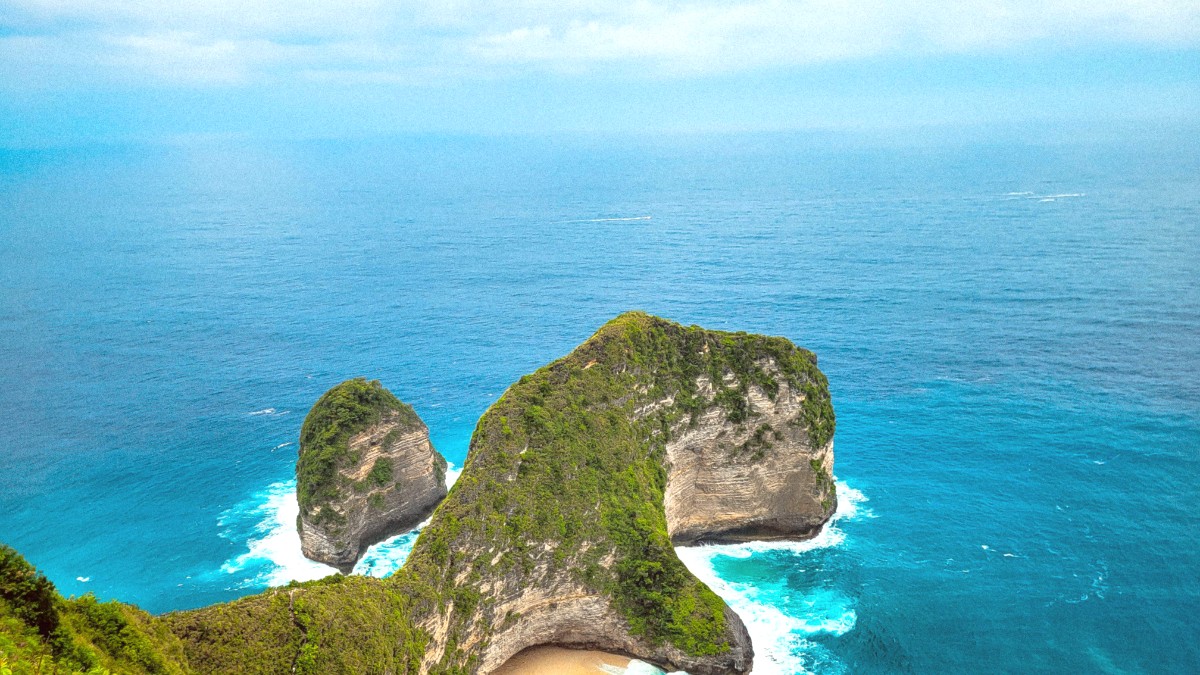
Indonesia
The term "monsoon" describes the heavy rainfall experienced during the wet season. Tropical cyclones (hurricanes or typhoons) do not typically occur in Indonesia. Extreme temperatures are rare; the climate stays consistently warm throughout the year, with little fluctuation outside of seasonal rain patterns.
The island's climate features distinct dry (April-October) and wet (November-March) seasons, each providing different travel experiences. Activities include snorkeling and diving with manta rays, exploring natural pools, and descending to breathtaking beaches.
Mola Mola (Ocean Sunfish) season typically runs from July to October, providing a chance to spot these unique creatures.
Cliffside Exploration & Beach Visits: The dry season (April-October) is ideal for accessing rugged beaches and viewpoints. Paths remain less slippery and more stable, making exploration safer and more comfortable. The wet season presents lush green scenery, creating a different but equally appealing backdrop for nature photography.
July, August, December/January
Optimal weather conditions with dry, sunny days. This period offers top visibility for diving and conditions for beach relaxation.
Tourist numbers reach their peak, leading to higher prices for accommodations and activities. Popular attractions become crowded. Booking everything well in advance is a must.
April-June, September-October
The weather generally stays good, offering a pleasant balance of sunshine and comfortable temperatures. Fewer crowds compared to high season, and prices might be slightly lower.
Some popular spots may still experience moderate crowds. The weather is transitioning, meaning a slight chance of unexpected rain or more humidity.
February-March, November - early December
This period presents the lowest prices for accommodation and some tours. You experience the fewest tourists, allowing for more authentic local interaction.
There is a higher chance of rain, which can impact outdoor plans. Rougher sea conditions can occasionally lead to delays or cancellations of fast boat schedules. Visibility for snorkeling and diving can reduce after heavy rainfall.
The atmosphere feels relaxed and welcoming. Water conditions are typically good for marine activities.
Landscapes appear lush and green due to the refreshing rains.
Tourist numbers reach their peak in high season. Fewer crowds are seen in shoulder season.
Higher prices in high season. Lower prices for accommodation and tours in low season.
Higher chance of rain in low season, which can impact outdoor plans.
Rougher sea conditions in low season can lead to fast boat delays or cancellations.
Visibility for snorkeling and diving can reduce after heavy rainfall in the low season.
Rules can change, so checking the official Indonesian Immigration website close to your travel date is always a good idea.
Citizens of many ASEAN countries can enter visa-free for up to 30 days for tourism (not extendable).
For stays longer than 60 days or specific non-tourism purposes, this visa becomes necessary.
Costs vary significantly based on your travel style and preferences.
Purchasing comprehensive travel insurance is highly recommended for your trip to Nusa Penida.
Consult a travel health professional for personalized advice. Common recommendations include Hepatitis A and B, Typhoid, Tetanus-Diphtheria-Pertussis (Tdap), and Measles-Mumps-Rubella (MMR).
May be advised for long-term travelers or those with high risk of animal exposure, especially in rural areas.
Needed if arriving from a country with a risk of yellow fever transmission.
Traveler's Diarrhea ("Bali Belly")
Drink only bottled or purified water. Avoid ice from unknown sources. Eat hot, freshly cooked food from reputable establishments. Carry Anti-diarrhea medication like Loperamide. Wash your hands frequently.
Mosquito-borne diseases (Dengue Fever): Dengue is endemic. Use Insect repellent containing DEET or picaridin, applying especially at dawn/dusk. Wear long sleeves and pants in the evenings.
Sunburn & Dehydration: Use high-SPF Sunscreen or Sensitive sunscreen. Wear a Wide-brimmed hat and Sunglasses. Stay hydrated.
Medical facilities on Nusa Penida are limited to basic clinics (e.g., Puskesmas in Sampalan). These can manage minor injuries or illnesses.
For serious injuries or illnesses, evacuation to a more advanced hospital in Bali (e.g., BIMC Hospital Kuta, Sanglah Hospital Denpasar) becomes necessary. This process can take time and involves a fast boat transfer.
Response times for emergency services on Nusa Penida can be slow due to the island's infrastructure and geographical challenges.
Indonesia sits on the Pacific Ring of Fire, making earthquakes common. A tsunami risk exists following large offshore earthquakes, though Nusa Penida is somewhat shielded by Bali and Lombok.
Purchasing comprehensive travel insurance is highly recommended. Your policy should explicitly cover:
Medical emergencies, including hospitalization and doctor visits. Emergency evacuation to Bali or your home country for serious conditions. World Nomads, SafetyWing, Insubuy are options.
Activities you plan to undertake, like scooter accidents (check specific clauses regarding motorcycle licenses) and diving.
Trip cancellation or interruption for unforeseen circumstances. For flight compensation, AirHelp can assist with delayed or canceled flights.